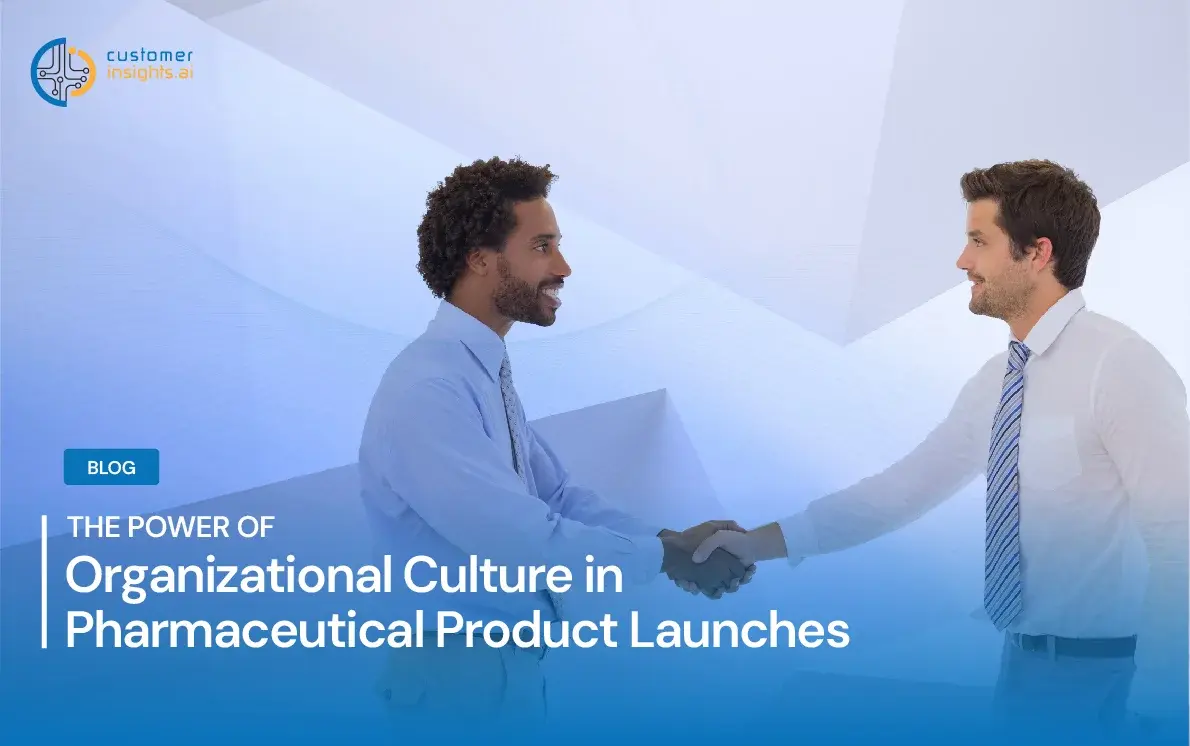The Power of Organizational Culture in Pharmaceutical Product Launches
September 28, 2023 | #Blog post

At its core, organizational culture embodies the collective principles, convictions, actions, and traditions that define an organization. When cultivated positively, culture can enhance employee contentment, involvement, and loyalty, resulting in enhanced efficiency, profitability, and customer contentment. Conversely, an incentive plan that focuses primarily on financial rewards for the sales team may breed an environment of competition that generates internal disputes and constrains the organization's capacity to adapt to market fluctuations.
Research shows that organizations with a strong ethical culture are more likely to have employees who exhibit ethical behavior, leading to higher levels of customer trust and satisfaction. In a study published in the Journal of Business Ethics, Fernández-Feijóo and colleagues (2014) found that ethical culture was a significant predictor of customer trust and satisfaction in the pharmaceutical industry. Furthermore, a report by Deloitte (2017) found that organizations that prioritize employee engagement and talent development outperform their competitors by a significant margin. The study suggests that organizations that create a positive culture that aligns with the organization's vision, mission, and goals are more likely to attract and retain top talent. Another study by Gallup (Harvard Business Review, 2013) found that companies with engaged employees have higher profitability, productivity, and customer satisfaction than those with low employee engagement. The study suggests that a strong culture of employee engagement can lead to better decision-making, increased innovation, and improved customer satisfaction.
Launching a new product in a highly restrictive managed care environment can be challenging for pharmaceutical manufacturers. While traditional incentive plans for sales teams can be effective, building a strong organizational culture can also mitigate uncertainties and factors outside of a company's control. However, the question remains: what are the best practices for creating a positive culture in the pharmaceutical industry? Have you seen companies that have successfully implemented a strong ethical culture, and if so, what were the outcomes? Share your thoughts and experiences in the comments below, and let's continue the discussion on how organizational culture can impact the success of product launches in the pharmaceutical industry.
Don't miss out on the opportunity to Lead the Charge with CustomerInsights.ai's PLAaaS! Our ML-based technology and expert team can help you drive innovation, boost commercial outcomes, and cut operational costs. Subscribe to our newsletter and follow me on LinkedIn to stay updated on the latest developments. If you're interested in learning more, feel free to drop me a note at rafi.vartanian@customerinsights.ai.